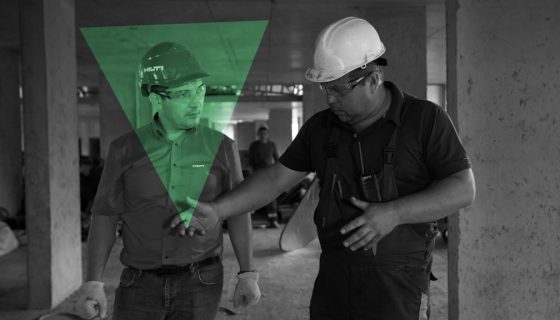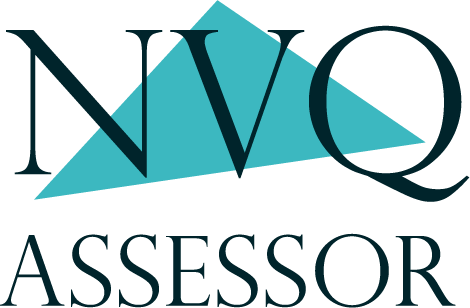Ultimate Guide to Setting Up Your Own Training Company
Setting up your own training company can be a natural progression if you’re already a seasoned freelancer or head of a small team. There are many reasons why you would want to start a training company. A lot of the time it comes from a need to have more training in certain areas. It also opens your time up, for you to spend it on more important aspects like family. Here we’ve made a comprehensive guide on what you need to consider before going ahead with the training company.
WHAT CAN I ASSESS?
We often get asked, “What can you teach or assess?”. The general rule for this is that you can assess or teach in any area you are occupationally competent in and have experience in. As well as the relevant qualifications. If you have the highest qualification in your specialism, with relevant and decent experience, you can assess or teach that qualification.
As you’re already considering becoming a training company, you may have an idea of what you’re going to assess and teach. However, if you only have a Level 1 or 2 qualification in your subject area and not enough occupational competence, it could be a good idea to upgrade your qualification. Allowing you to undertake other qualifications as well.
WHAT QUALIFICATIONS DO I NEED?
If you want to start your own training company, there are a few minimum qualifications that you or someone else need to hold. Firstly you need the full Level 3 Certificate in Assessing Vocational Achievement or CAVA for short. Furthermore, this enables you to assess learners in their workplace and learning environment. This is an important part of the training company! Secondly, you’ll need someone to have the Level 3 Award in Education and Training or AET. The AET is essential to anyone who wants to teach. Whether that’s workshops or small groups of learners.
Finally, the last two qualifications you need to have in the training company are:
- The Level 4 Award in the Internal Quality Assurance of Assessment Processes and Practice. (IQA)
- Level 4 Certificate in Leading the Internal Quality Assurance of Assessment Processes and Practice (Lead IQA)
It may be that you want to have one or the other if you want to completely standardise the complete process, which a Lead IQA will enable you to do, or if you just want to be part of the process. Where a standard IQA qualification will be beneficial. It really does depend on what you want as a company.
One thing you need to bear in mind is that you will need at least one Assessor and one IQA. However, you yourself can’t be both. You will need someone else to hold one of the qualifications.
For all these courses we do recommend Brooks and Kirk, as training providers!
WHAT IS THE DIFFERENCE BETWEEN COURSES?
Now, this may sound vague, but we have the answers for you! Frequently, we are asked what courses are required. The answer to this is, it all just depends! It depends on what your subject area is and what you want to specialise in. A lot of people ask us about the difference between accredited and non-accredited courses.
In order to be accredited, a course must have been approved by an awarding body that is nationally recognised. You’ll get a certificate for it and will usually have a Level attached, for example, CIBTAC Level 5 Award in Laser Tattoo Removal. SFJ Awards is an awarding body that moderates accredited courses. Qualifications and Awarding Bodies must be registered with a regulator, such as Ofqual.
There may be a certificate and a level on a non-accredited course, but the certificate will be an in-house certificate that won’t be recognized nationally.
When it comes to finding accredited courses, we know it can be extremely confusing. In your search for courses, you may be met with companies that aren’t transparent about their accreditation, such as smokescreen companies. The course may appear ideal and cheap, but once you investigate, you find a completely different experience. There will be no recognition if the course is not accredited or linked to an Awarding Body.
You can verify a course’s accreditation on the Ofqual website. The website will list a course if it is legitimate.
BESPOKE AND GOVERNMENT FUNDED COURSES
Additionally, there are two other courses you may want to think about. Bespoke and Government funded. It is possible to develop bespoke courses on your own or with the assistance of your company. You can customize the course to meet your specific needs. Companies commonly develop and deliver these types of courses in-house.
A government-funded course is one that is entirely or partially funded by the government. The ESFA manage any funding. Before you can offer the course, you need to be accredited and then be on the list of approved training providers.
WHAT IS AN AWARDING BODY?
You’re probably wondering what an Awarding Body is. As we have mentioned them quite a few times now! An Awarding Body is an examination board that sets exams, standards and awards qualifications. Here are a few that you may already know! Pearson Excel, SFJ Awards, VTCT (which are involved with beauty qualifications), NCFE, AQA and many more!
Different Awarding Bodies may have the same qualifications to offer, so it’s up to you who you want to go with.
WHICH ONE IS RIGHT FOR ME?
That’s a question you need to ask yourself as a business. What qualifications are you going to train? This often helps decide which Awarding Body you may want to go with. Do you want to go with more than one? What is right for your business? As some Awarding Bodies can be more pricey.
Here are a few other questions you should ask yourself before choosing an Awarding Body.
- What Awarding Bodies are well-known in your area of specialism?
- What are the requirements for a centre?
- how much do they charge for centre recognition, registrations and certifications?
- Do they align with your company’s values?
HOW MUCH IS IT GOING TO COST?
The overall cost of setting up a centre is going to differ from company to company. It again really does depend on what you need as a company. There may be additional qualifications you need to obtain before setting up the training company. You may also need to pay for registrations, certifications, and centre recognition.
In addition, there could be resources to create, such as booklets, packs or even a learning system. You also need to take into account the preparation and assessing time needed. In some circumstances, you may be initially paying out more than you’re bringing in. You may want to think about advertising and social media to try and promote your courses to the public. Know your audience as well! Who do you want to advertise the courses to? What is the age range?
SO WHAT’S NEXT?
This is just the start of the process! There will be a lot more things you need to do in order to set up your training company. Our friends over at Brooks and Kirk have a great consultancy service where they go into detail about how you can achieve your ideas and goals. If you have any questions please don’t hesitate to get in touch with us at our email hello@nvqassessor.org.uk. Otherwise feel free to share the post with friends, colleagues or even your social media.
NEWSLETTER
Fortnightly Assessor Jobs, Blog Posts and Exclusive Content straight to your inbox.
Welcome!
Ultimate Guide to Setting Up Your Own Training Company!
Setting up your own training company can be a natural progression if you’re already a seasoned freelancer or head of a small team. There are many reasons why you would want to start a training company. A lot of the time it comes from a need to have more training in certain areas. It also opens your time up, for you to spend it on more important aspects like family. Here we’ve made a comprehensive guide on what you need to consider before going ahead with the training company.
WHAT CAN I ASSESS?
We often get asked, “What can you teach or assess?”. The general rule for this is that you can assess or teach in any area you are occupationally competent in and have experience in. As well as the relevant qualifications. If you have the highest qualification in your specialism, with relevant and decent experience, you can assess or teach that qualification.
As you’re already considering becoming a training company, you may have an idea of what you’re going to assess and teach. However, if you only have a Level 1 or 2 qualification in your subject area and not enough occupational competence, it could be a good idea to upgrade your qualification. Allowing you to undertake other qualifications as well.
WHAT QUALIFICATIONS DO I NEED?
If you want to start your own training company, there are a few minimum qualifications that you or someone else need to hold. Firstly you need the full Level 3 Certificate in Assessing Vocational Achievement or CAVA for short. Furthermore, this enables you to assess learners in their workplace and learning environment. This is an important part of the training company! Secondly, you’ll need someone to have the Level 3 Award in Education and Training or AET. The AET is essential to anyone who wants to teach. Whether that’s workshops or small groups of learners.
Finally, the last two qualifications you need to have in the training company are:
- The Level 4 Award in the Internal Quality Assurance of Assessment Processes and Practice. (IQA)
- Level 4 Certificate in Leading the Internal Quality Assurance of Assessment Processes and Practice (Lead IQA)
It may be that you want to have one or the other if you want to completely standardise the complete process, which a Lead IQA will enable you to do, or if you just want to be part of the process. Where a standard IQA qualification will be beneficial. It really does depend on what you want as a company.
One thing you need to bear in mind is that you will need at least one Assessor and one IQA. However, you yourself can’t be both. You will need someone else to hold one of the qualifications.
For all these courses we do recommend Brooks and Kirk, as training providers!
WHAT IS THE DIFFERENCE BETWEEN COURSES?
Now, this may sound vague, but we have the answers for you! Frequently, we are asked what courses are required. The answer to this is, it all just depends! It depends on what your subject area is and what you want to specialise in. A lot of people ask us about the difference between accredited and non-accredited courses.
In order to be accredited, a course must have been approved by an awarding body that is nationally recognised. You’ll get a certificate for it and will usually have a Level attached, for example, CIBTAC Level 5 Award in Laser Tattoo Removal. SFJ Awards is an awarding body that moderates accredited courses. Qualifications and Awarding Bodies must be registered with a regulator, such as Ofqual.
There may be a certificate and a level on a non-accredited course, but the certificate will be an in-house certificate that won’t be recognized nationally.
When it comes to finding accredited courses, we know it can be extremely confusing. In your search for courses, you may be met with companies that aren’t transparent about their accreditation, such as smokescreen companies. The course may appear ideal and cheap, but once you investigate, you find a completely different experience. There will be no recognition if the course is not accredited or linked to an Awarding Body.
You can verify a course’s accreditation on the Ofqual website. The website will list a course if it is legitimate.
BESPOKE AND GOVERNMENT FUNDED COURSES
Additionally, there are two other courses you may want to think about. Bespoke and Government funded. It is possible to develop bespoke courses on your own or with the assistance of your company. You can customize the course to meet your specific needs. Companies commonly develop and deliver these types of courses in-house.
A government-funded course is one that is entirely or partially funded by the government. The ESFA manage any funding. Before you can offer the course, you need to be accredited and then be on the list of approved training providers.
WHAT IS AN AWARDING BODY?
You’re probably wondering what an Awarding Body is. As we have mentioned them quite a few times now! An Awarding Body is an examination board that sets exams, standards and awards qualifications. Here are a few that you may already know! Pearson Excel, SFJ Awards, VTCT (which are involved with beauty qualifications), NCFE, AQA and many more!
Different Awarding Bodies may have the same qualifications to offer, so it’s up to you who you want to go with.
WHICH ONE IS RIGHT FOR ME?
That’s a question you need to ask yourself as a business. What qualifications are you going to train? This often helps decide which Awarding Body you may want to go with. Do you want to go with more than one? What is right for your business? As some Awarding Bodies can be more pricey.
Here are a few other questions you should ask yourself before choosing an Awarding Body.
- What Awarding Bodies are well-known in your area of specialism?
- What are the requirements for a centre?
- how much do they charge for centre recognition, registrations and certifications?
- Do they align with your company’s values?
HOW MUCH IS IT GOING TO COST?
The overall cost of setting up a centre is going to differ from company to company. It again really does depend on what you need as a company. There may be additional qualifications you need to obtain before setting up the training company. You may also need to pay for registrations, certifications, and centre recognition.
In addition, there could be resources to create, such as booklets, packs or even a learning system. You also need to take into account the preparation and assessing time needed. In some circumstances, you may be initially paying out more than you’re bringing in. You may want to think about advertising and social media to try and promote your courses to the public. Know your audience as well! Who do you want to advertise the courses to? What is the age range?
SO WHAT’S NEXT?
This is just the start of the process! There will be a lot more things you need to do in order to set up your training company. Our friends over at Brooks and Kirk have a great consultancy service where they go into detail about how you can achieve your ideas and goals. If you have any questions please don’t hesitate to get in touch with us at our email hello@nvqassessor.org.uk. Otherwise feel free to share the post with friends, colleagues or even your social media.
NEWSLETTER
Fortnightly Assessor Jobs, Blog Posts and Exclusive Content straight to your inbox.
Welcome!

Building Services End-Point Assessor
The employer is a Training Sector organisation in Leamington Spa who specialise in developing qualifications for the Construction and Civil Engineering sectors. They develop a range of industry qualifications including Apprenticeships, which are developed and assessed by sector specialists with real industry knowledge. They currently have a fantastic opportunity an experienced Building Services Engineer or […]

Childcare Assessor (Trainee or Qualified)
KM have an exciting opportunity for a Childcare Assessor to deliver full Apprenticeships in Childcare! This opportunity is open to both Trainee and Qualified candidates. Trainee applicants – this is a great opportunity for a Room Leader (or above) to transition to a new and rewarding career within the training industry! Qualified Assessors – applications […]

Skills Tutor
Educated Appointments are delighted to be supporting a fast-growing premier provider of accountancy training and apprenticeships. Due to increased demand for apprenticeship training programmes they are looking out for new Tutor to join our team. This role sits within the Impact Skills Team and ultimately reports to the Programme Delivery Director. This role includes travel […]

Business and Education End-Point Assessor
The role of an Apprenticeship End-Point Assessor is to provide independent, fair, reliable, and consistent assessment services to Training Qualifications UK customers working with Apprenticeship Standards. End-Point Assessors are required to use assessment experience with robust and relevant industry knowledge to form judgements and grading decisions upon the completion of a variety of assessment activities, […]




